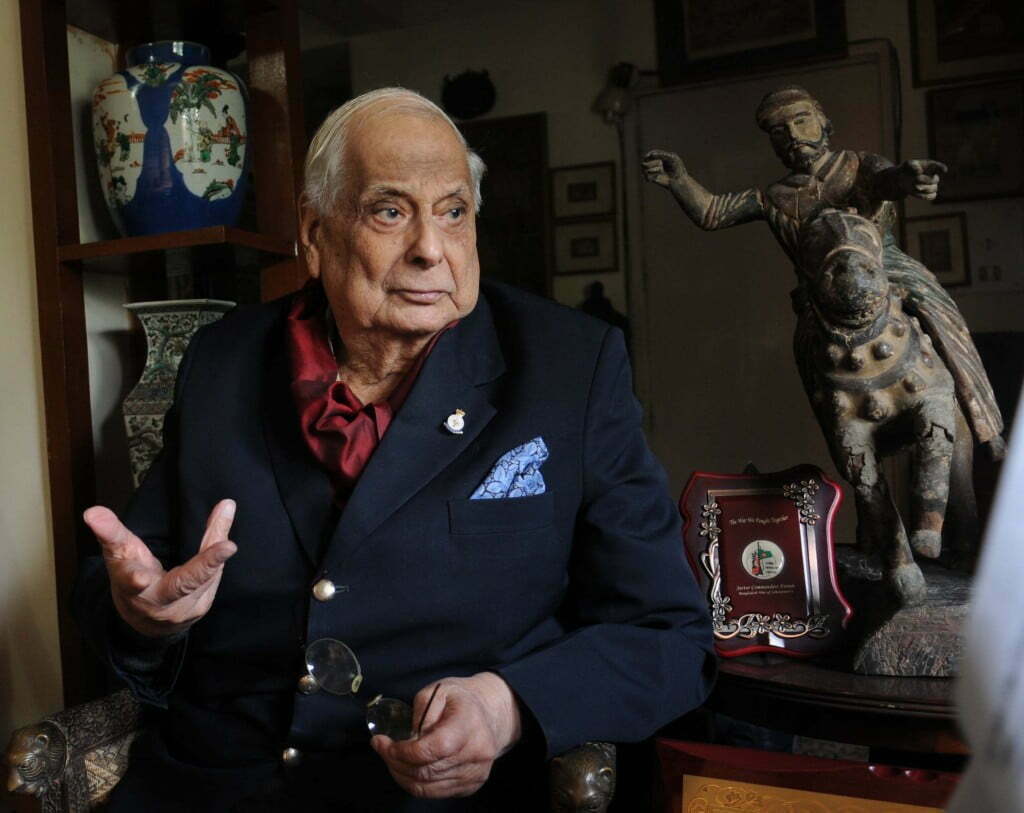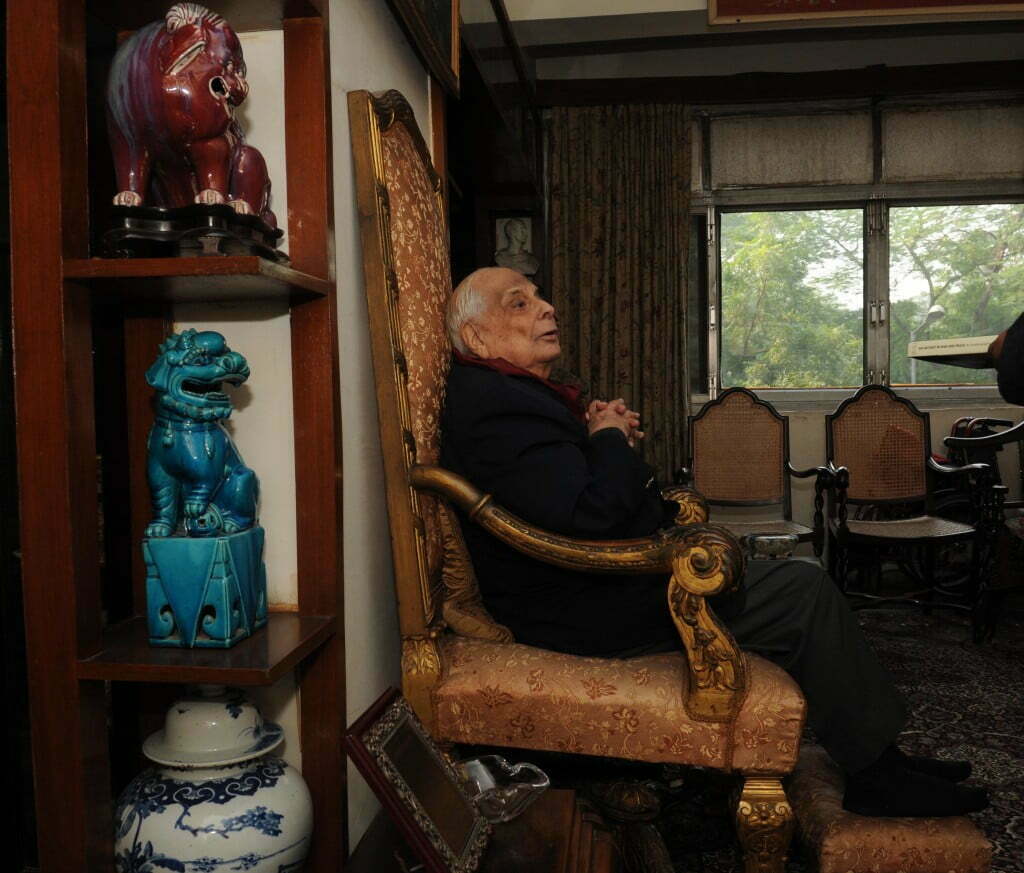
This is the most incredible story that above all tells you why there is hardly any difference between a hero and zero.
He started from zero as a refugee whose family migrated to India some 200 years ago. In that sense he was an ‘outsider’ but proved himself to be a loyal Indian citizen and great warrior. One of the heroes of 1971 war who led India to its first and only decisive victory, he retired as Army Commander Eastern Command… And later went on to serve as the Governor of Goa and Punjab.
But behind all this there is the story of an officer who came on the verge of putting up his papers. He would not had achieved half he did, had he quit…. But that was all because Gen PP Kumaramangalam the last of the Sandhurst trained King’s Commissioned Indian Officers in the Indian Army who later went on to be the 7th Chief of the Indian Army. Kumaramangalam proved to be the ideal senior officer and guiding angle who saved him from the bullying of Gen Kaul. “If it wasn’t for him (Kumaramangalam) I would have left the Army. He protected me all the time….,” says Gen Jacob.
“There is a lot of professional jealousy in the army. Everyone wants to succeed sometimes at the expense of others”, says Lt Gen Jacob-Farj-Rafael “JFR” Jacob.
Today at 94 Gen Jacob is a frail old man with a sharp mind inside a failing body. He needs assistance even to sit on the chair. But because he did not marry he has no one to call family just four private staff who assist and take care of his needs. “Each time I decided to marry some obstacles…came in my way…I nearly got married a couple of times…,” he says casually.
Theirs was a Jew family from Baghdad to Delhi via Afghanistan about 200 years ago because of atrocities by the Nazis. “They were killing the Jews so we moved out. Jews have lived in India for 2000 years in Cochin. They had been traders since king Solaman’s times. India is a hospitable country. There has never been any anti Semitism in India. It’s a wonderful country we got shelter here,” he says.
Jacob was born in Calcutta in British India, in 1923. His father, Elias Emanuel, was an affluent businessman who lost his money because of illness. So at the age of nine Jacob was sent to a boarding school in Darjeeling.
Even while in school Jacob always wanted to join the army. Of course then the purpose was different. Motivated by the plight of European Jews, he enlisted in the British Indian Army. “I joined the army to fight the Nazis and Germans because of the atrocities they were committing. The refugees from Germany were coming to India.

The urgent requirement for manpower during the World war II meant that the men were sent to the war front with sketchy training. After graduating from Officer’s Training School Mhow in 1941, Jacob’s regiment took part in Middle East, Burma and Sumatra for five years in the world war II.
“Those days because there were so many people to be trained and hardly enough infrastructure, there was very little training. I learnt my soldiering in the battlefield and was wounded in Burma, “he says. Jacob almost got a half a chance to fight the Germans but his regiment was cut to pieces before they arrived there.
One of the important lessons that he learnt as a 2nd Lieutenant in the Middle-East was that respect is earned not commanded. In those days there used to be viceroys commissioned officers VCOs now called JCOs. One day Jacob scolded one of them in front of the men. He went and complained to the Battery Commander who called him. “I was a 2nd Lieutenant, he was a Major… He said Jacko, that is my nick name. How old are you… I said 19. He said you know how much service he has got…I said 24, he said that will be all”.
Jacob who saw soldering in both the British Indian army as well as the Indian Army is full of praise for the British. During those days the officers were mainly British and troops were Indian.
“It is wrong that the British ill treated the Indian officers. If the Indian officers knew their jobs they were looked after, but if they didn’t do their job, they got a boot like anyone else. The British were through professionals who knew how to respect professional Indian officers”.
Jacob never got a chance to participate in the 1947 war as he was teaching in school of artillery and they wouldn’t let him go.
Once again in 1962 he missed the war. Both Sam Manekshaw and he were instructors at the staff college, wellington. Sam Manekshaw was Maj General while Jacob was a Lieutenant Colonel.
In 1965 war he saw same action while commanding an infantry division, which later became 12th infantry division, in Rajasthan and also composed the army manual on desert warfare.
But in a way the first main war he saw after world war, was the 1971 war where as the Chief of staff of Eastern command he planned the war, conducted and controlled the operations.
In course of his 36 year career in the army, he raised a regiment (3 Medium regiment), commanded a brigade, a division and raised a corps (16 corps) and was the eastern army commander. But he has one regret while others like Sam Manekshaw were publically hailed as the hero of 1971 war – he who did most of the strategic planning and execution including flying to Dhaka to convince Gen Niazi to surrender wasn’t even recommended for a war medal.

All he has got in return for his effort in 1971 is a PVSM which today any general routinely gets at least once before retirement. Some even get two.
The only saving grace is that the people of Bangladesh rate him highly as the General who got them their freedom from tyrannies of Pakistan. Even the Pak official history of 1971 war compiled by Pakistan’s National Defense College gives him credit, “the credit really goes to General Jacob’s meticulous preparations in the Indian eastern command and to the implementation by his Corps commanders.”


I am extremely inspired with your writing skills and also with the format for your blog.
Keep up the nice high quality writing, it is uncommon to peer a great blog like this one these days..